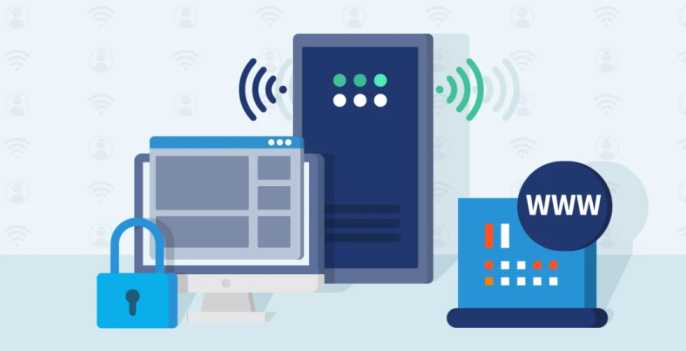Understanding Different Types of Proxies and Their Use Cases
Proxies are becoming increasingly popular among casual Internet users, marketing specialists, and even cybersecurity professionals. The Internet structure heavily depends on proxies to reduce server overload and distribute traffic globally.
Each proxy use case depends on its type.
Because there are several different proxy types, we decided to elaborate on each and outline its uniqueness. Let’s begin!
Free vs Paid
Occasionally you can encounter free proxy ads offering anonymous browsing at no cost. In reality, most free proxies are no good for anything, as they collect, log, and sell user data. Instead of more private browsing, you can expose personal details to malicious third parties.
Although you can encounter a genuinely transparent free proxy service, they often come from dubious owners with ill intent. Paid proxies outperform free ones in server pool size, connection speed, and valuable features.
Proxy Source Types
A proxy is essentially a device that agrees to share its IP address and bandwidth with another user. The device used is a proxy source that defines its type and use cases.
Residential Proxies
Residential proxies come from real people sharing their devices as a proxy. Rotating residential proxies are the most popular proxy type because they excel at web scraping, geographical restriction evasion, and undetectability.
When you browse the Internet via a residential proxy, the websites see an ISP-issued IP address that comes from a real person. Your unique IP address is hidden, protecting your privacy, and IP rotation adds an extra layer of anonymity. Simultaneously, rotating IP addresses is an excellent way to scrape publicly available web data without exposing your operations to a third party.
Mobile Proxies
All mobile proxies are residential. They have outstanding privacy features compared to other proxy types. Because operators use the same IP address for hundreds of users, mobile proxies are especially hard to trace to their source.
Marketing professionals often use mobile proxies to anonymize specific operations. For example, social media marketing specialists often require hundreds of social media accounts, but most social networks restrict the allowed number to a few. Mobile proxies ensure you can switch IP addresses and create as many accounts as possible because social networks cannot identify that they come from the same source.
Datacenter Proxies
These proxies have next-to-nothing online privacy features and entirely different use cases. They come from data centers that have high-speed servers with millions of datacenter IPs. When you communicate online via a datacenter proxy, it will send a header that identifies them as such. If you try to scrape a website, you will often fail because the header reveals that you’re not an authentic user.
However, they are excellent for business operations that do not require anonymity. Datacenter proxies excel at large file transfers, accessing geo-blocked content, SEO monitoring, and operations with the cloud. They are faster than other proxy types, have the best uptime, and are way cheaper. Businesses of any size use datacenter proxies to optimize data-related tasks.
SOCKS Proxies
Socks stands for Socket Secure network protocol that handles client-server communication through the firewall. SOCKS proxies have no protocol restrictions and allow username and password authentication to buff up user online safety. They are used to access databases protected by firewalls, optimize packet travel paths, and provide some online security without reducing performance by encryption.
VPNs
VPNs aren’t exactly proxies, but these two technologies are so similar that understanding the difference benefits proxy users.
VPN stands for Virtual Private Network, a privacy-protection-oriented cybersecurity software. Like a proxy, a VPN also reroutes user traffic through a different server obfuscating the unique IP address and issuing an alternative.
Unlike proxies, VPNs apply additional encryption to all online traffic (except VPN browser extensions that work on the browser level), protecting it from online surveillance. The most common encryption algorithm is AES-256.
Businesses shouldn’t rely on VPNs to streamline data-related tasks as encryption slows down the information flow. On the other hand, operations that require the utmost online secrecy are best done via a VPN, with all content hidden behind unbreakable encryption.
Two Proxy Destinations
Proxies can also be grouped by their destination. There are two proxy destination types:
- Forward proxies. They stand in front of the client device and manage outgoing traffic. User traffic is rerouted to the proxy server, it strips it of the original IP address, assigns a new one, and sends it to the target destination. They are used to bypass geographical blocks, web scraping, and safe browsing.
- Reverse proxies. They stand in front of servers and accept all incoming traffic. Reverse proxies are an essential part of the Internet because they take huge amounts of data and distribute it across relevant servers. Without them browsing the Internet would be impossible as most servers would crash under the huge load.
Summary
Although all proxies fulfill the same function of channeling data flow through an additional server, their use cases greatly differ. We mentioned only the most popular cases. If you want to learn more about proxies, we’d suggest reading about other types of them as well – for example, the ones that are used to automate online shopping, restrict malicious site access on workplace devices, and avoid network-level restrictions on university campuses.


2 thoughts on “Understanding Different Types of Proxies and Their Use Cases”